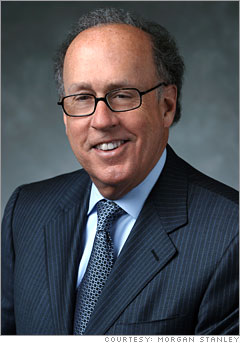Chairman, Morgan Stanley Asia
For the second time in seven years, the bursting of a major-asset bubble has inflicted great damage on world financial markets. In both cases--the equity bubble in 2000 and the credit bubble in 2007--central banks were asleep at the switch. The lack of monetary discipline has become a hallmark of unfettered globalization. Central banks have failed to provide a stable underpinning to world financial markets and to an increasingly asset-dependent global economy.
The current post-bubble shakeout is hardly an isolated development. Basking in the warm glow of a successful battle against inflation, central banks decided that easy money was the world's just reward. That set in motion a chain of events that has allowed one bubble to beget another--from equities to housing to credit.
When the bubble burst in early 2000, the optimists said not to worry. After all, Internet stocks accounted for only about 6% of total U.S. equity-market capitalization at the end of 1999. Unfortunately, the broad S&P 500 index tumbled some 49% over the ensuing 2 1/2 years, and an overextended corporate America led the U.S. and global economy into recession.
Similarly, today's optimists are preaching the same gospel: Why worry, they say, if subprime is only about 10% of total U.S. securitized mortgage debt? Yet the unwinding of the far broader credit cycle gives good reason for concern--especially for overextended American consumers and a U.S.-centric global economy. Central banks have now been forced into making emergency liquidity injections, leaving little doubt of the mounting risks of another financial crisis. The jury is out on whether these efforts will succeed in stemming the rout in still overvalued credit markets. Is this any way to run a modern-day world economy? The answer is an unequivocal "no."
It is high time for monetary authorities to adopt new procedures--namely, taking the state of asset markets into explicit consideration when framing policy options. As the increasing prevalence of bubbles indicates, a failure to recognize the interplay between the state of asset markets and the real economy is an egregious policy error.
That doesn't mean central banks should target asset markets. It does mean, however, that they need to break their one-dimensional fixation on CPI-based inflation and also give careful consideration to the extremes of asset values. This is not that difficult a task. When housing markets go to excess, when subprime borrowers join the fray, or when corporate credit becomes freely available at ridiculously low "spreads," central banks should run tighter monetary policies than a narrow inflation target would dictate.
The current financial crisis is a wake-up call for modern-day central banking. The world can't afford to lurch from one bubble to another. The cost of neglect is an ever-mounting systemic risk that could pose a grave threat to an increasingly integrated global economy. It could also spur the imprudent intervention of politicians, undermining the all-important political independence of central banks. The art and science of central banking is in desperate need of a major overhaul--before it's too late.
| When Wall Street fails, it asks for a handout. Fortune's Allan Sloan says there must be a better way. (more) But the Treasury Secretary tells Fortune Magazine's Nina Easton that the economy is strong enough to withstand the volatility. (more) |

